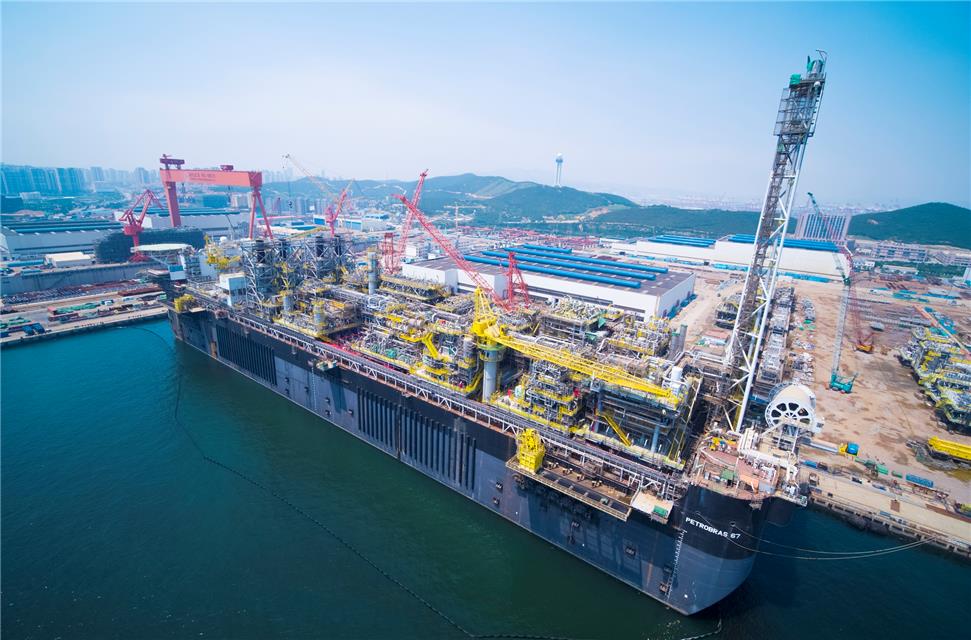Why have FPSOs become so important for oil & gas companies?
Conceptually, FPSOs have given oil and gas companies a lot of freedom and versatility with regards to exploration and extraction. FPSOs enables companies to produce oil & gas and explore increasingly remote areas at a cheaper price in comparison to traditional offshore oil and gas production and storage methods.
FPSOs have six key advantages.
1.Time – FPSOs can connect to any pipeline. In addition, when an existing oilfield is depleted, an FPSO can move to another location. This saves time and money and mitigates the need to build expensive permanent pipelines and facilities. As such, FPSOs make an ideal solution for smaller oil and gas fields that will be depleted in a matter of years.

FPSO
2.Cost – With FPSO, Oil & Gas companies are not required to build permanent structures like pipelines and piled buildings. FPSOs have the capability to store processed oil and gas and offload it to shuttle tankers for transportation to refineries.
According to Investopedia, a purpose-built FPSO can cost north of $800 million, especially if their production capabilities exceed 250,000 barrels per day (BPD). Meanwhile, a traditional offshore oil platform can cost up to $650 million. While the initial cost of an FPSO is slightly higher, FPSOs prove to be more cost-effective in the long run.
The cost of a traditional offshore oil platform can skyrocket when other expenditures are taken into account, such as maintenance, well completion costs and platform decommissioning costs.
3.Safety – FPSOs can be disconnected from the pipelines and oil wells they are moored to. This makes FPSOs a safer option in areas with severe weather conditions.
4.Convenience – Oil producers can lease the vessels, giving oil and gas companies greater flexibility over their assets ensuring they can react to market forces. An oil and gas producer can conceivably lease as many or as little FPSOs as they want. This kind of flexibility isn’t feasible with fixed assets which take years to build and finance. This not only saves costs but it bridges the gap between small and large oil and gas organizations, ensuring healthier competition.
5.More viable fields – Some oil and gas fields lack commercial viability due to weather hazards, the distance to the shore or the cost-inefficiency of building and maintaining traditional infrastructure. FPSOs mitigate this by being insensitive to deep-water and adverse weather.
6.Storage capabilities – FPSOs can store a substantial amount of oil and gas, increasing the commercial viability of hard to reach fields.
